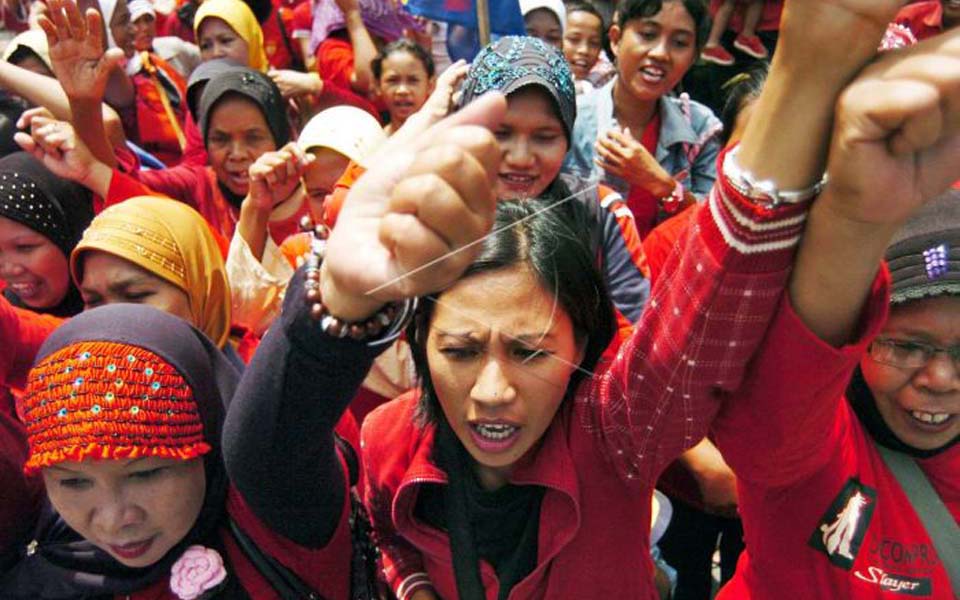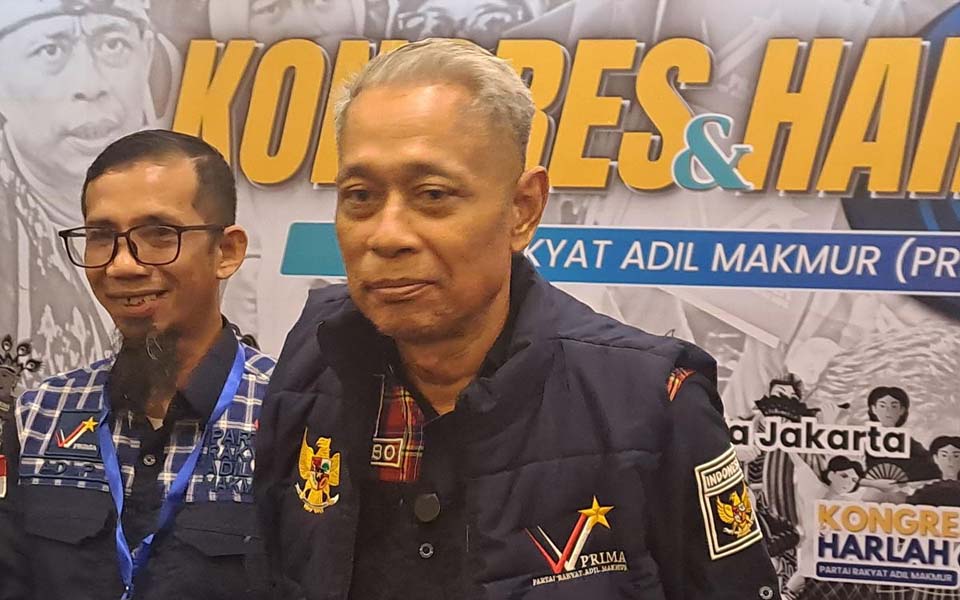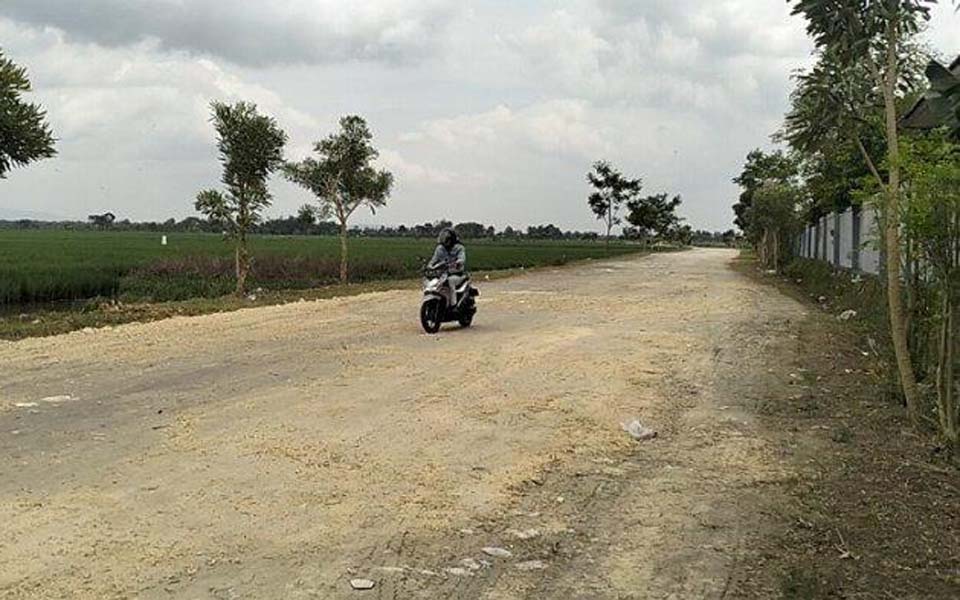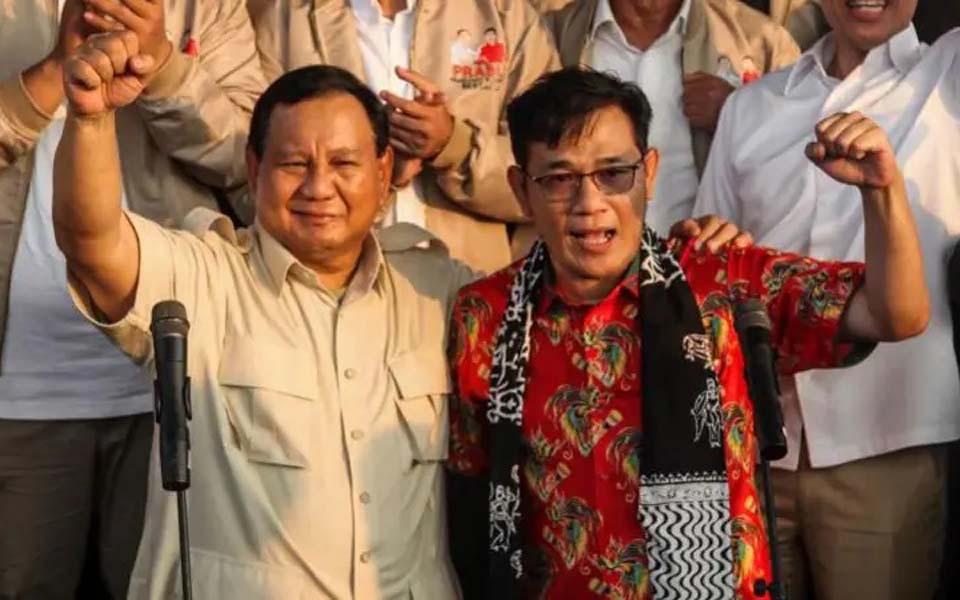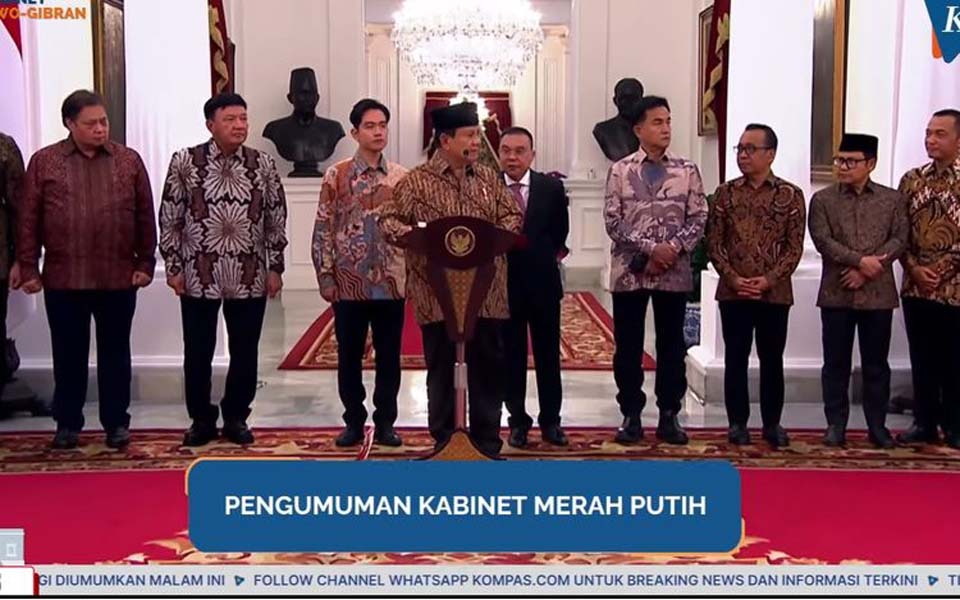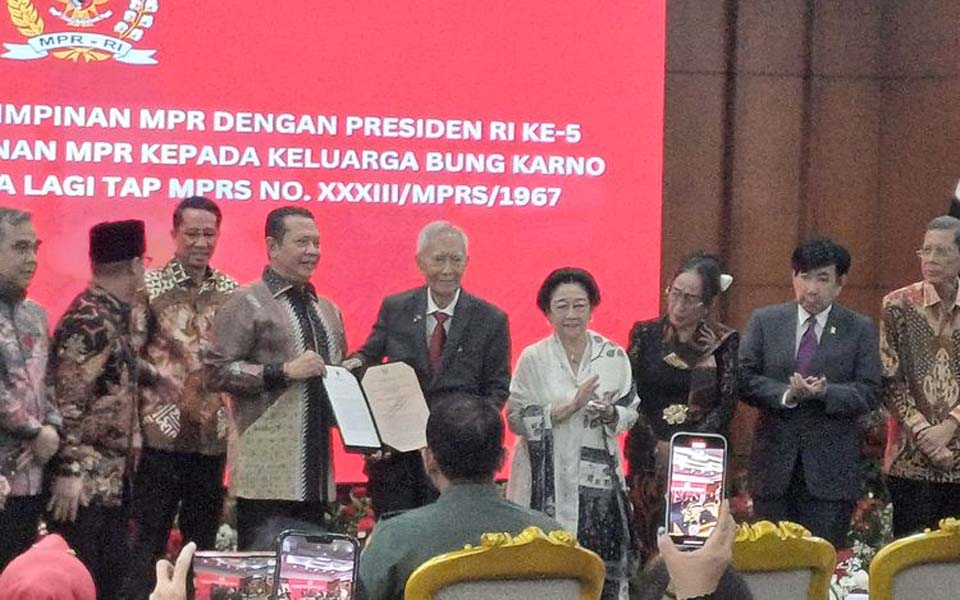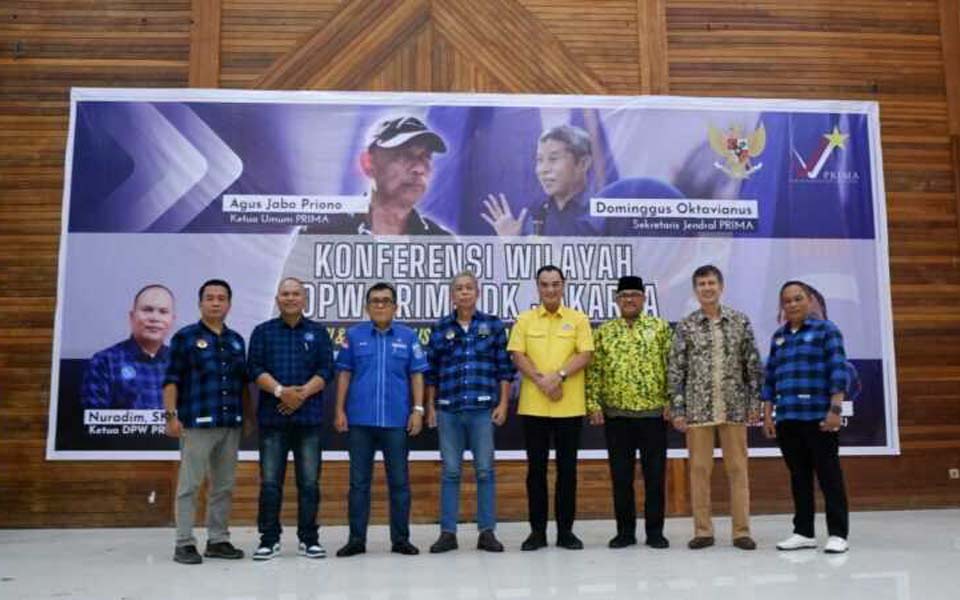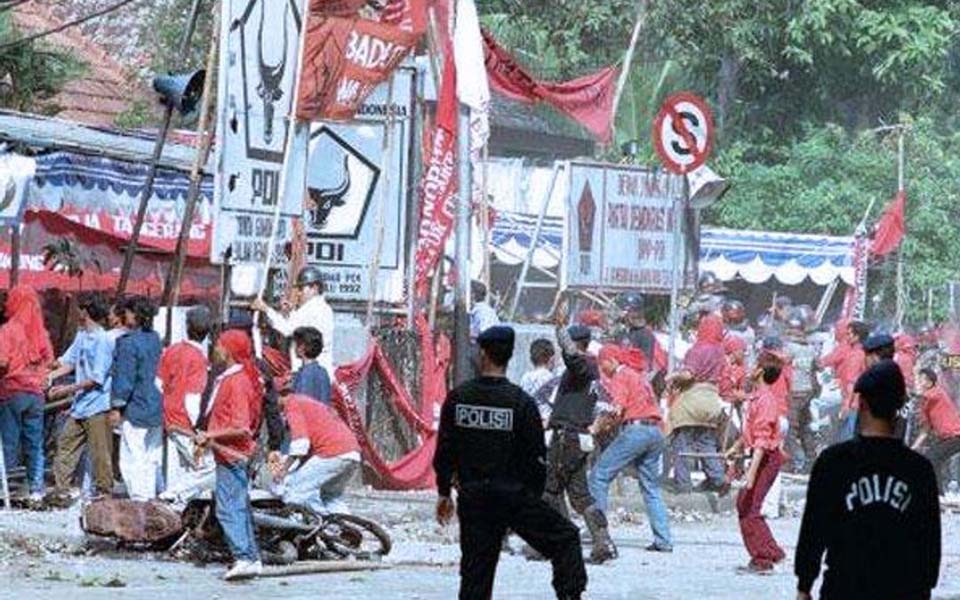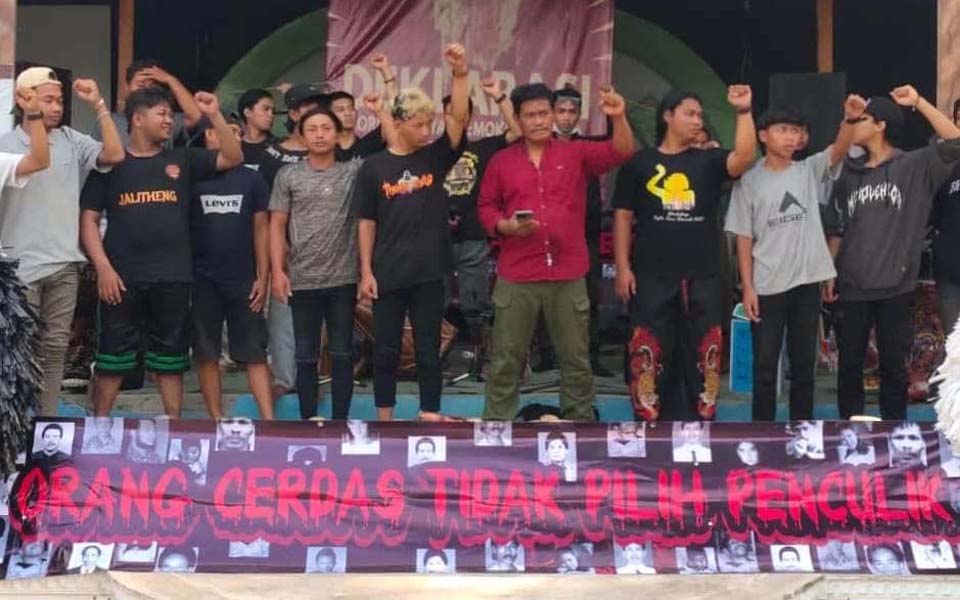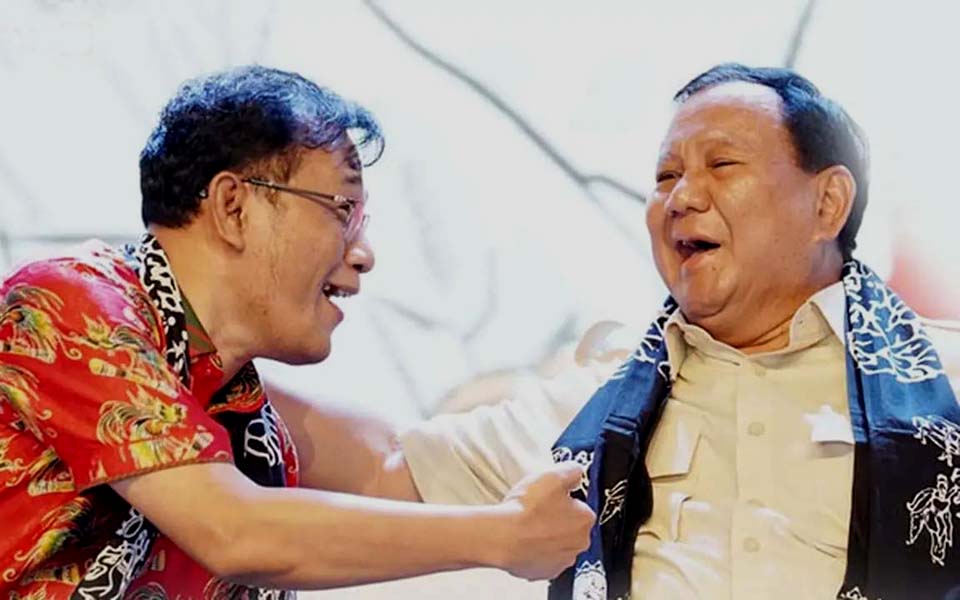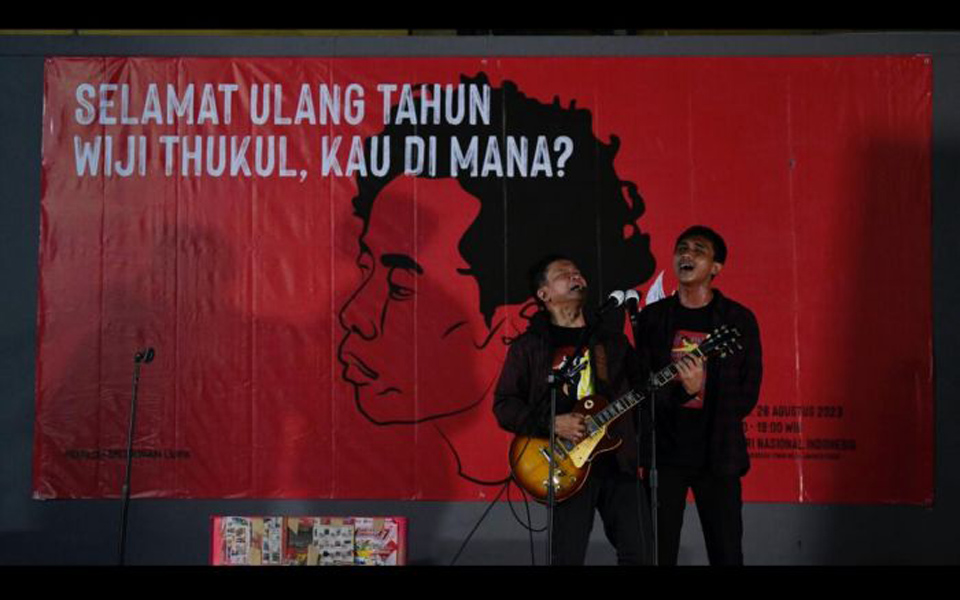Wibatsu Ari Sudewo, Solo – Over the last two years, the National Liberation Party of Unity (Papernas) has become hot news in the Central Java city of Solo and other parts of the country. This new party has indeed triggered controversy after it was accused of being a reincarnation of the Indonesian Communist Party (PKI). Moreover on account of this antipathy, certain groups have organised hostile actions against their events.
This has not however lessened the determination of those steering the party to continue to grow and develop the party. Like the proverb “the dogs may bark, but the caravan moves on”, Papernas continues to forge ahead.
This has also been the case in Solo. Two of Papernas’s leaders, the chairperson of the party’s Central Java regional management board, Kelik Ismunanto and deputy chairperson Suprapto, say they will continue to lead their party forward. Even though the road ahead is steep and ridden with obstacles lying in wait.
“This has become something we are determined to do. We will continue to build the party regardless of the consequences. The intimidation against us has been an inspiration, that gets the adrenaline pumping to continue to stand tall”, said Kelik, one of the founders of the party in Jakarta.
Who then is Kelik Ismunanto? After quick background check, it turns out Kelik is no stranger to Solo. Ten years ago he was well known here as a student activist. He and his sisters and brothers worked hard to voice the people’s demands for justice. He also played a significant role in the demonstrations opposing the regime of former President Suharto.
This was when Kelik was still a student at a tertiary education institute in Solo. “I was also involved in various kinds of movement actions and other student based organisations”, he said.
In the end it was his courage in opposing hegemony of Suharto and his New Order regime that made a name for Kelik and other activists around the country. It was this also that resulted in Kelik being invited to Jakarta no long ago for a meeting with a number of other former student activists.
Now, it was this meeting that eventually give rise to the idea of forming a new party. This party later became known as the National Liberation Party of Unity, or Papernas. “My friends and I, former student activists, including several from the PRD (People’s Democratic Party), which had already been disbanded (sic), students and various labour organisations met in Jakarta”, said Kelik.
It was during this meeting that a discourse surfaced about seeking a national identity. As this developed, this discourse grew into the embryo of Papernas. “Because coincidentally I was from Solo, in the end I was chosen to build Papernas in Central Java. [But] one thing was certain, our struggle was for the ordinary people”, claims Kelik.
Suprapto meanwhile, who was spontaneously elected to a to become Papernas’s deputy chairperson in Solo, admits to being new to the world of party politics. Moreover he also claims to have never having been a member of any political party before. According to Suprapto, his decision not to join any of the existing political parties was essentially based on one thing.
“I never found a party that suited by sense of morals that really and truly sided with the little people. Even when they declared that they sided with [ordinary people], it was only during election campaigns, as soon as they succeeded in taking power, the people were abandoned”, he said.
On the question of other organisations, he admits to never having been involved in student or sports organisations. So then, when did he become interested in joining Papernas? According to Suprapto, it happened four months ago.
At the time, he was attending a seminar on nationalism and populist economics that had been organised by a non-government organisation. Agus “Jabo” Priyono – now the general chairperson of Papernas – was one of the speakers on the theme of nationalism.
“He was so articulate in speaking about the issue, it touched my heart. It turned out that aside from myself there were still people who cared about the increasing decline in the a sense of nationalism. After he stepped down from the podium, I introduced myself. Then we exchanged cell phone numbers. Since then we have been communicating with each other”, he said.
Nevertheless, Suprapto admits that he only joined Papernas after the founding congress in Kaliurang, Yogyakarta, last January. He also admits that he was not invited to the meeting. The offer to join Papernas was made some time after the meeting.
“As soon as I was shown the statutes and the rules of association, I said yes straight away. In my heart, [I felt that] this was the party I was looking for. Particularly because of the slogan of Tri Panji, which I think is truly orientated towards the people”, he said.
Like other parts of the country however, Kelik and Suprapto’s efforts to build a Papernas network in Solo encountered opposition. Only, for them it was not an obstacle. Rather, it inspired them to keep moving forward.
“We will continue struggling for the people. The Indonesian people should not be poor. The government is unable to utilise our abundant natural resources for the sake of the people’s welfare”, said Kelik.
With regard to the party’s membership, Suprapto said that his party is open to anyone who has a nationalistic spirit. According to Suprapto, a background as a member of another party is not a problem.
Papernas does not look at the background of its members. Rather, they pay attention to their member’s orientation to the future of the nation. “But, what is clear is having a sense of nationalism. That is the most important thing”, he said while noting that his party is now attracting more members from youth circles.
Notes:
Tri Panji – Papernas’ Three Banners of National Unity: Repudiating the foreign debt, nationalising the mining industry and building the national industry for the welfare of the people.
[Translated by James Balowski.]





